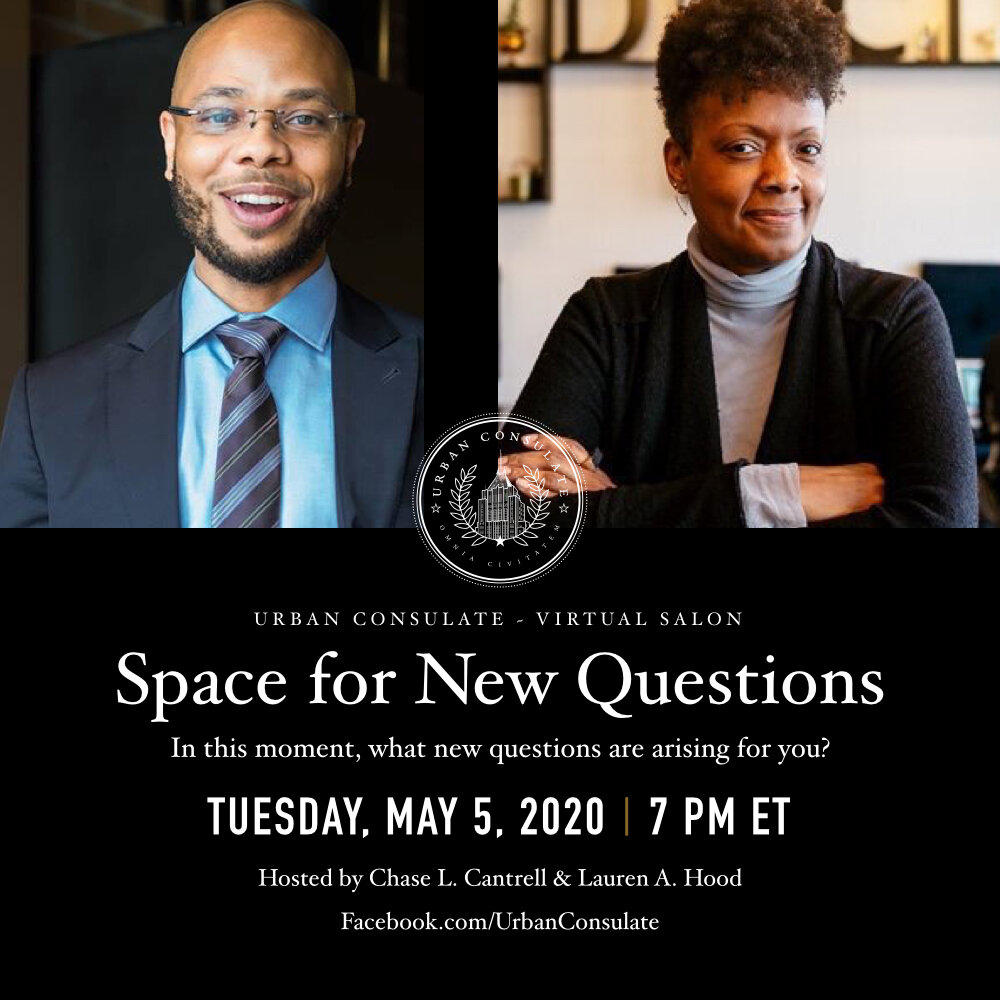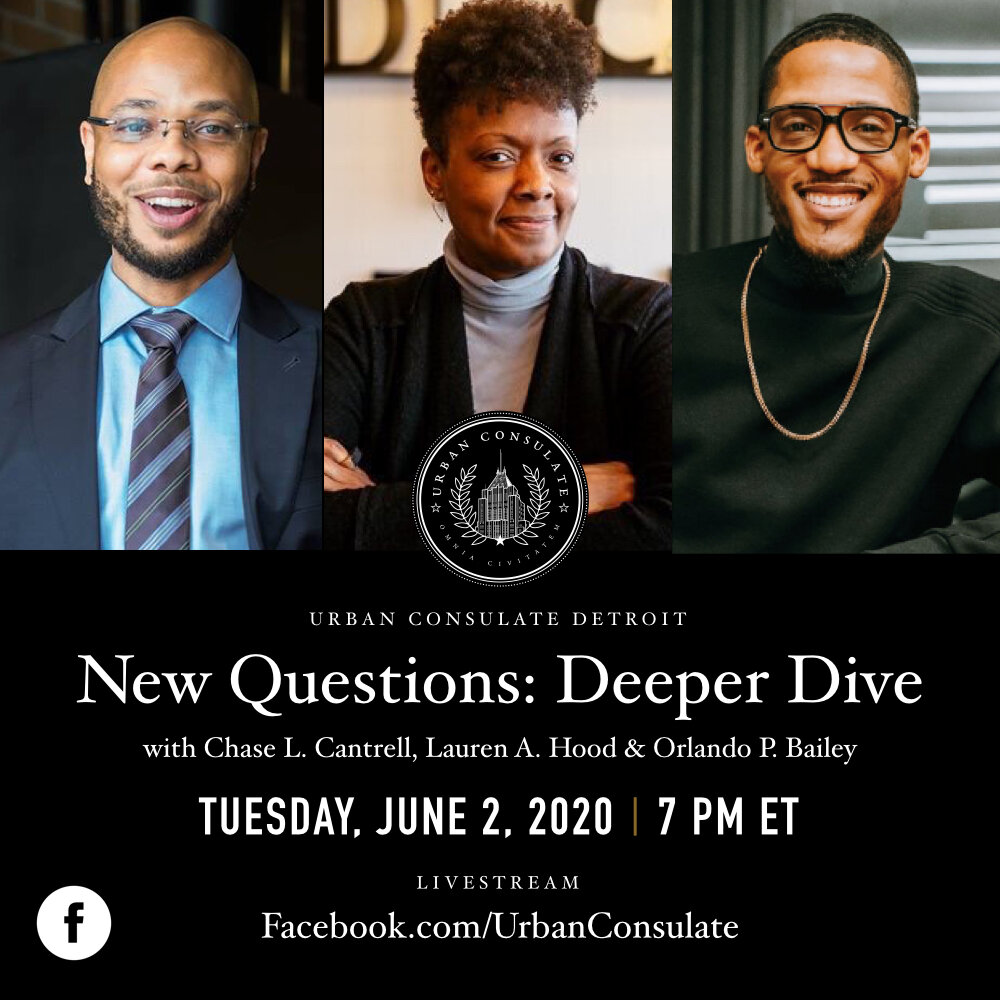Q U E S T I O N S
Considering the state of things due to COVID-19, the sentiment for many is that we all get back to “normal.” Understanding “normal” as the status-quo, should going back be what we desire? Perhaps using this time to discern what we do and do not want to return to and how to achieve a new normal should be an actionable goal with a strategy?
—Anonymous
Whose job is it to name our collective trauma and facilitate community healing?
—Orlando Bailey, Detroit
In the beginning, COVID-19 felt like a leveling experience that put everyone on the same level—human. But as it has progressed in the U.S. and all over the world, bias, preference, money, corruption, privilege, greed and more have reared their ugly heads. When we are allowed to leave our homes again, how much will things actually change? How much will stay the same? Will we be more human and see eye-to-eye with one another, or will the same ugly societal constructs continue to rage on?
—Madeline Hendry, Philadelphia
Will social distancing practices evolve into another vehicle that drives us further apart? How can we really show love when we’re so far apart? Is virtual technology enough?
—Gee Horton, Cincinnati
What’s next? When do we begin designing and implementing what we want to happen when the pandemic flattens and the media shifts its attention? Especially, what do we do now for the now and next generation to be healthy biologically and mentally?
—Reshounn Foster, Detroit
Who's holding the misery as fire in my community and what can I learn from them?
—Megan Trischler, Cincinnati
Due to coronavirus safety measures and city decrees, Philadelphia's public transportation system is currently running on a bare bones schedule, with arrival times not guaranteed because of staffing shortages. I would imagine other large cities are experiencing similar services cutbacks at this time. With so many folks working for essential institutions and businesses dependent on this system to commute, and with an eye to future relaxation of the stay-at-home orders when the return of students and more workers to commuting might again be a concern, what should we be doing to increase safe biking infrastructure and availability of bikes and training for all Philadelphians as an alternative? Isn't now the time to advocate for improvements to make bike commuting more safe, affordable and available for all?
—Elizabeth Hahn, Philadelphia
Is civility still the wave?
—Orlando Bailey, Detroit
How can we get the 15% of the voting age population identified by researchers & scholars as ‘passive liberal’ non-voters, to vote?
—Claire Nelson, New Orleans
What are some of the examples we've observed of workers, members of the working class, members of any "class" below upper-middle class, and/or non-corporate and non-government people in your city seizing the(ir) means of production in the past 2-3 months? Any good ones stand out?
—Jocelyne Ninneman, New Orleans
What does Detroit's (or any city that houses this group's participants) Mutual Aid Network look like? Do Detroiters feel like they were connected to sufficient mutual aid safety net(s) when CV19 struck? How strong or how weak are your city's mutual aid networks? If you feel like you were connected in this sense and it brought a significant level of aid or stability, how will this experience affect how interact with mutual aid networks or any given community you feel strongly aligned with?
—Jocelyne Ninneman, New Orleans
What are some of the ways Detroit (or any city in this discussion) can distribute/allocate its holdings/assets to catalyze/save/stimulate/augment locally-owned small businesses in the wake of billions of SBA grants going to corporations and major franchises, instead of small businesses?
—Jocelyne Ninneman, New Orleans
Will this moment give us the space to change our systems? To address systemic poverty? Will enough of us recognize that many, if not the majority, of 'essential workers' do not make a living wage of at least $20/hour? Will we collectively recognize the essentialness of the people who are the real engines of our economy? Will the CEOs and boards of corporate structures recognize that the workers create their wealth? If they don't, will we demand that they do? While we rightly praise and honor the nurses and doctors will we recognize the support workers in hospitals and healthcare settings? Will the men and women who take care of our families in nursing homes be able to make a living wage with benefits going forward? How can we lift up the necessity to not go back to "normal?” How do we demand healthcare for all? Will we just barely get through this only to experience it again in the fall/winter? Can we agree that a lack of national strategy puts us all at risk to another round of infections and shut downs?
—Mary Rivers, Cincinnati
In the aftermath of the pandemic can we promote a new secular morality? Progressive people are suspicious when the line separating "church and state" is blurred. But that should not mean that we abandon moral language and reasoning in the development of public policy. The coronavirus bailout legislation, while certainly not perfect, reflected that moral value that the government has a role in providing protection for individuals, businesses, and non-profit organizations during a crisis. We quarantine to both protect ourselves but also because of our moral obligation to protect others. I'd like to be part of a discussion about what the principles of the new secular morality are, and how they should inform ongoing public policy.
—Michael Einheuser, Detroit
How do we educate Detroit kids who have no access to the internet or technology in a world of potential viral infections?
—Jason Headen, Detroit
Where do we go from here — and what role does art play in helping us get there?
—Gee Horton, Cincinnati
With budget cuts happening across the country, how will arts and culture institutions maintain their presence in urban landscapes post-pandemic?
—Jermaine Jenkins, Philadelphia
What would Baldwin say?
—Claire Nelson, New Orleans
We’ll be working on two different projects for the next two years on two different teams: 1) What does COVID-19 reveal about the relationship between water systems and public health that we should change going forward? 2) Did we learn anything from COVID-19 that can disrupt the school to prison pipeline?
—Richard Smith, Detroit
How do we sustain the positive changes in our vocabulary since COVID-19 — (i.e.) a previously “unskilled” worker is now an “essential” worker?
—Orlando Bailey, Detroit
Doing research on the 1918 Influenza pandemic triggered more questions and led me to compose the timeline below. Will history repeat itself? Shall we review what worked and what to do differently?
1918 - Influenza pandemic (which has a second wave) [3 years later]
1921 - The massacre in Tulsa, OK Black Wall St.
1922-1924 - Although the bill was quickly passed by a large majority in the House of Representatives, bans on lynching were prevented from coming to a vote in the U.S. Senate, due to filibusters by the Southern Democratic bloc. [8 years later]
1929 - NYSE Wall St. crashed [4 years later]
1933 - The New Deal
2020 - What will do the rest of these months to reduce/eliminate the second wave? In our communities and as a nation?
2023 - What will be set in motion to increase empathy and respect for human life?
2031 - What policies, practices, and infrastructures will we advocate for and build to ensure long term and permanent equity?
2035 - What economies will be established to ensure every thrives?
—Reshounn Foster, Detroit
Could we talk about what collective "sacrifice" looks like? We know it in the context of war — but what about in this time of climate change, income inequality & racial wealth disparity? How can we "sell" the idea to Americans with more space, comfort & luxuries to transfer some of that to others? What could they gain (emotionally, socially, spiritually) from divesting a greater portion of their resources than they currently contribute in taxes & charitable gifts?
—Claire Nelson, New Orleans



